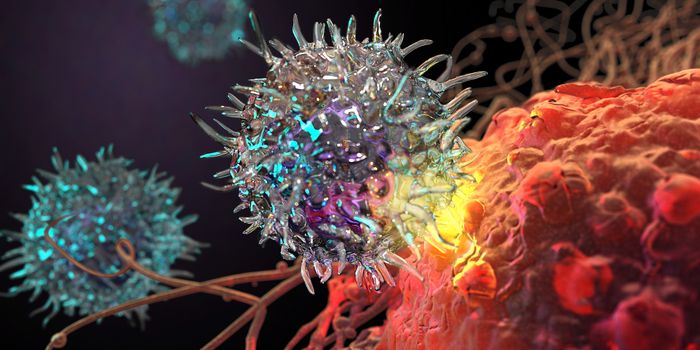Upending Assumptions About the Causes of a Bone Marrow Disorder
Fanconi anemia is rare genetic disorder that can be caused by changes in the sequence of one of at least 22 different genes. The disease can lead to a variety of symptoms including bone marrow failure, skeletal abnormalities, and increases the risk of cancer in patients. Scientists have long thought that the disease is due to problems with DNA that cause cell death, and disruptions in blood stem cells (also known as hematopoietic stem cells (HSCs), which are crucial for constantly replenishing the body's supply of blood cells.
When protein-coding genes are expressed, the proteins they encode for start out as strings of amino acids, which have to be properly folded into a three-dimensional shape, or else serious problems can arise. Scientists have now determined that a buildup of miscoded proteins is actually a root cause of Fanconi anemia, and that a bile acid may be useful as a new treatment for the disorder. The research has been reported in Nature Communications.
"Fanconi anemia is thought to be a DNA disorder, and those who have been researching it have focused solely on this aspect," said senior author Peter Kurre, MD, Director of the Pediatric Comprehensive Bone Marrow Failure Center at the Children's Hospital of Philadelphia (CHOP). "What our research demonstrates for the first time is that Fanconi anemia is caused by an accumulation of misfolded proteins that preclude proper cell cycle progression and stem cell expansion, which in turn leads to rapid bone marrow failure after birth."
In this work, the researchers found that in Fanconi anemia, there is an acceleration of protein synthesis in fetal liver HSCs, causing stress in an organelle called the endoplasmic reticulum (ER), which is essential to protein production.
As misfolded proteins are created, they build up and slow down the cell cycle in these liver HSCs, which then become inefficient, and cause bone marrow failure at an early age.
The researchers also discovered that tauroursodeoxycholic acid (TUDCA), which is a bile acid used for treating gallstones and some other issues, can rescue the protein folding mechanism, and restore it to normal.
"When TDUCA was given, we were able to confirm the restoration of folding as well as improved function of the stem cells," said first study author Narasaiah Kovuru, PhD, a postdoctoral researcher in the Kurre Laboratory.
More research will be needed before this treatment can be used in the clinic to treat Fanconi anemia, but since TUDCA is already approved for human use, it may be helping patients soon.
Sources: Children's Hospital of Philadelphia, Nature Communications









